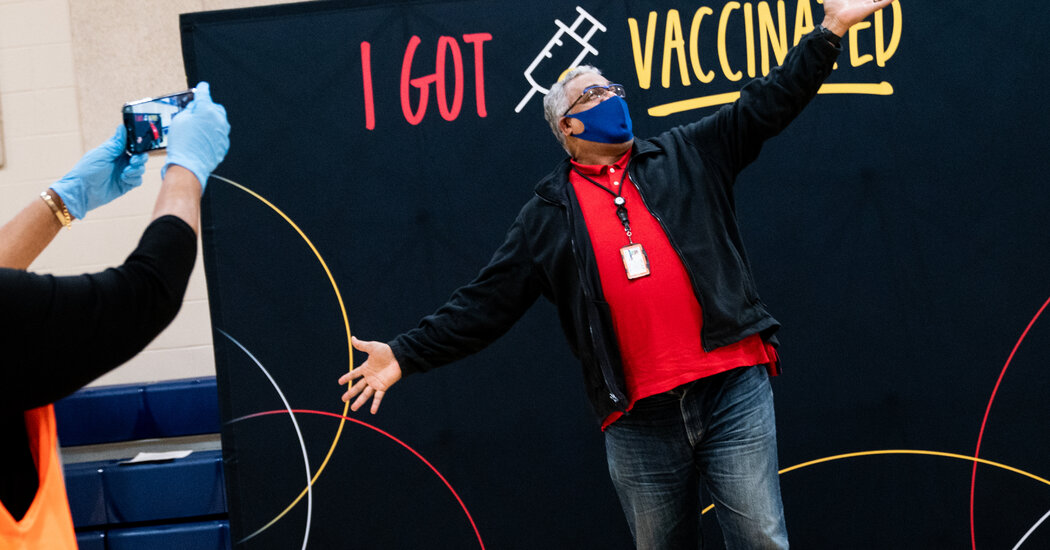As states ramp up vaccinations and expand eligibility, health officials can look to one state in particular to better understand the challenges ahead: Maryland has encountered nearly all the geographic, demographic and human behavioral challenges that come with a public health task of this scale.
It has poor urban neighborhoods where many people lack access to regular care; wealthy Washington suburbs whose residents have proved adept at vacuuming up shots meant for other ZIP codes; isolated rural areas; and a sign-up system that has turned vaccine hunting into a part-time job for many.
“We are going to push, but we’re also going to have to pull,” said Dennis Schrader, the acting health secretary in Maryland, describing the state’s plan not only to increase capacity at mega-sites and pharmacies, but also to “pull people in” with smaller, more targeted efforts.
This week, Gov. Larry Hogan, a Republican, announced that all Maryland adults age 16 and older would be eligible for the vaccine by April 27.
While Mr. Hogan has faced criticism from local leaders about the pace of the state’s vaccination effort, some people now worry it is speeding up too quickly. Mr. Hogan has already been criticized for not doing enough to reach Black and Latino residents, who make up more than 40 percent of the state’s population, but only 28 percent of those who have received at least one shot.
The Hogan administration is planning to open four more mass vaccination sites by the end of April, bringing the total to 12. Mr. Hogan’s aim is to have 100,000 shots administered per day by May, up from an average of 57,000 now.
The state has started adding primary care doctors to the effort. It is also working with local health departments and community partners, particularly churches, to open “pop-up” vaccination sites aimed at populations that may be geographically or socially isolated, or distrustful of government.
Pastor John Jenkins at the First Baptist Church of Glenarden said he understood the role his church could play in Prince George’s County — a majority-Black area that has had high Co infection rates, but low vaccine rates.
With the help of the University of Maryland Capital Region Health, he quickly created pop-up vaccine sites with his army of church volunteers.
The site at his church planned to vaccinate a few hundred people a day, but quickly got closer to 1,000 with residents like Denise Evans, who said she felt “more comfortable” getting her shot there. The church will soon ramp up to proe shots daily.



